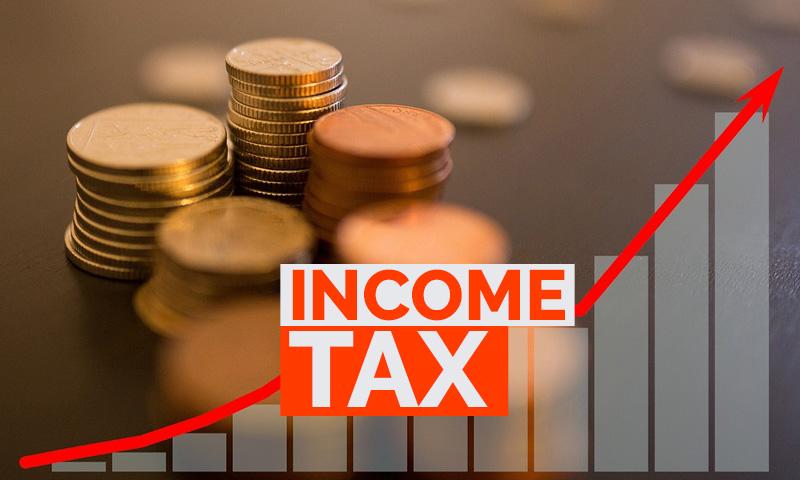A Beginner’s Guide About the Teens and Income Taxes
Jan 17, 2024 By Triston Martin
Introduction
Even though the IRS provides a page specifically for educators, few schools educate pupils on how to file their taxes (titled Understanding Taxes). Many factors contribute to this problem, such as schools' inability to pinpoint which skills are essential for kids' growth and students' reluctance to put in the effort. Only 17% of respondents between the ages of 18 and 34 have even the most fundamental understanding of personal finance, according to the FINRA Foundation, a resource for investor education. Knowing tax filing procedures is part of this.
Most young people only have a general idea of how income tax works and what they must do to comply with it. Your responsibility as a parent is to guide your child through this critical life transition by helping them assess the tax filing requirements and consulting with tax experts. It would help if you took full ownership of this obligation. This parent's quick reference chart provides the basic rules you should follow when deciding when your child should file for college (or whether they should file at all). As a bonus, it includes tips for teaching your kid to be responsible with money so they can avoid your problems down the road. Here you’ll know about Teens and Income Taxes.
A Minor's Taxes
Numerous tax provisions are age-specific. Most taxpayers who are 65 or older by the end of the tax year are eligible for a larger standard deduction. However, the age of a taxpayer is not a defence against federal income tax liability.

Simple Instructions For Completing A Teen's Tax Return
Your daughter's file status for taxes will depend on three factors. Researching the IRS's guidelines for dependents is an excellent first step. She must be under 19 or 24 and enrolled full-time or permanently disabled at any age if she is not a full-time student. On top of that, she spends more than half of her time unable to eat because she cannot afford to. See if you can find out where she gets her money. There are specific limits placed on both earned income, such as that from labour, and unearned income, such as dividends, interest, investment earnings, or a combination of the two. She must file a tax return if her income from any source exceeds the applicable thresholds.
Who Pays Taxes?
Whether or not an individual must pay federal income tax depends on the amount and source of income earned during the taxable year. If they itemise, their tax bill could go up or down depending on the total amount of their itemised deductions and any tax credits they qualify for.
How Much Tax Will a Teen Pay?
The total amount of taxes your kid owes depends on their income level and tax bracket. Some forms of income, like those earned through self-employment or investment gains, are subject to additional taxes or tax rates that differ from those applicable to other forms of income. But regular sources of income like wages are subject to tax brackets adjusted periodically for inflation. In many countries, people of all ages who have taxable income must submit tax returns. The only times this doesn't apply are when a person's income is so low that they don't have to file taxes or if the money is exempt from taxation under the law. This is unlikely to be the case for most teens' traditional sources of income.
How Employment Income Is Taxed
Earnings from a job are taxable as regular income. The tax rates that apply are as follows. Employers withhold employee tax payments from salary; by comparing the total amount of taxes owed for the year to the amount of taxes paid, such as through withholding from paychecks, a working teen or any other taxpayer can calculate their actual tax due for the year. If more money was deducted from their paychecks for taxes than was necessary, they are entitled to a refund. If less tax were withheld than was necessary, they would be liable to pay the Internal Revenue Service the difference.
When a Minor Has Capital Gains?
Of course, monetary income isn't the only source of support; there are others. In the eyes of the IRS, the following are examples of "unearned income": Passive income includes interest, dividends, capital gains, rent, and royalties. The "kiddie tax" applies to minors whose unearned income for the tax year is more than a specified threshold. Children under the age of 18 are also subject to this tax. The standard dependency deduction for the tax year 2022 is capped at $1,150. This amount is not subject to taxation. The following $1,150 is subject to taxation at the child's marginal tax rate. Their taxable income is so significant that they are subject to the maximum tax rate. Earned and unearned income are taxed at the same rate above $2,300. Children who owe the "kiddie tax" must file a tax return with IRS Form 8615.

Conclusion
The "kiddie tax" is just one example of a provision of the law that applies specifically to kids and teenagers. Any other mature individuals are exempt from these rules. Most of the time, taxes on teenagers are no different from taxation on adults. If their taxable income for the year exceeds either their standard deduction or the amount they can deduct through itemised deductions, or if their self-employment income for the year exceeds $400, they will likely need to file a tax return and pay income tax.

Methods Of Debt Consolidation How Does Debt Settlement Work
Feb 19, 2024
Individuals can settle their debt by making a one-time payment to a creditor in return for the cancellation of some or all of their debt. To effectively negotiate a debt settlement plan, you must cease making the monthly minimum payment on that debt. These payments will accrue late penalties and interest, negatively impacting your credit score.

The Best Money Saving Tips for Singles
Mar 15, 2024
Are you a single person finding it difficult to manage your expenses and save money? This guide has got you covered on the best money saving tips that you should know

Credit Cards Annual Fee
Nov 11, 2023
There are several circumstances in which it does not make economic sense to pay an annual fee for a credit card. There is no shortage of credit cards that do not charge an annual fee.

Home Appraisal Costs, Uses, and What to Expect
Dec 09, 2023
A home appraisal is an important part of any real estate transaction, as it evaluates the market value of a property. It takes into account factors such as location, age, condition and size, as well as recent upgrades or renovations. A variety of types of appraisals exist for different types of transactions, such as relocation appraisals or investment property appraisals.

Everything You Should Know About Time to Rebalance Your Portfolio
Jan 03, 2024
Investing in the stock market can significantly grow your wealth and achieve your financial goals. However, as with any investment strategy, there are risks involved. One way to manage these risks is to rebalance your portfolio regularly

8 Must-Know Aspects of the Tomo Card: A Comprehensive Guide
Feb 01, 2024
Explore the revolutionary Tomo card, a digital banking solution offering user-centric services, multi-account integration, low fees, and effective financial management tools.

Comprehensive Guide to Bad Debt: Write Offs and Estimation Methods
Dec 29, 2023
Struggling to manage bad debt? Learn how to estimate and write off bad debt to help you have a better financial outlook.

What are IRS Payment Plans – A Detailed Guide
Dec 18, 2023
Are you interested in learning about the IRS payment plans and how they can benefit you? Then this article is just for you.

What Are the Ranges for Credit Scores?
Dec 03, 2023
Your creditworthiness is quantified by your credit score, which creditors use to assess the risk of lending you money. A higher credit score (from 300 to 850) indicates you are more likely to make timely debt payments. Your credit score must be elevated to be approved for a loan, credit card, or other financial instrument.

7 Best Mortgage Refinance Lenders
Jan 14, 2024
Here are the top mortgage refinance lenders that offer reasonable rates and smooth experiences for smarter financial decisions

Exploring the Top 9 Low-Cost Brokers of 2024: A Complete Review
Mar 15, 2024
Explore the top 9 low-cost brokers of 2024, from Fidelity Investments to Acorns, and make intelligent investment decisions with ease

Exploring Different Checking Account Options for Financial Needs
Dec 11, 2023
Manage your money by finding the right fit for your financial goals by exploring various checking account types in this article.